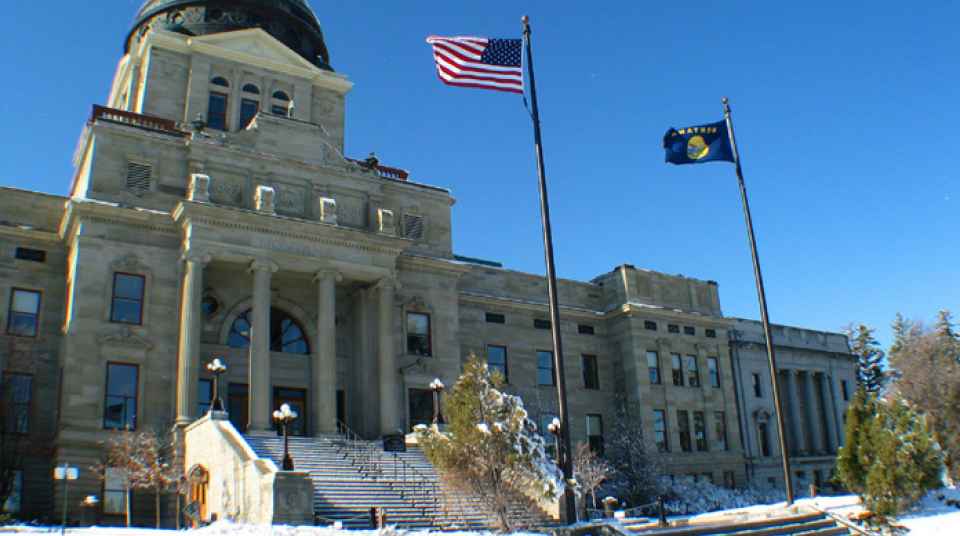
Espinoza v. Montana Department of Revenue, a case the Supreme Court is scheduled to hear in the next week, raises questions about how the Supreme Court should write its opinion on the matter. The case concerns the issue of whether or not states may subsidize secular private education without also giving financial support to religious education. The Court will most likely follow the decision made in one of its past cases, Trinity Lutheran Church v. Comer, a similar case that deemed denying public funds to churches unconstitutional. However, lawyers for the plaintiffs in Espinoza (parents who wish to keep their children in religious private school) argue that allowing the government to subsidize secular private schools and not religious ones could mean students would be forced to choose between attending a school that aligns with their beliefs or receiving thousands of dollars in financial aid.
The issue with this case in terms of constitutionality is the how the Supreme Court should interpret the First Amendment. The First Amendment states that "Congress shall make no law respecting an establishment of religion, or prohibiting the free exercise thereof" but also includes the free exercise clause that limits the government from targeting religious people. This struggle with the interpretation of the Constitution is one of the many examples of cases that make it hard for the Supreme Court to practice judicial restraint. I would think a scenario where both clauses are fulfilled might just have the SCOTUS leave everything as is, but that would sacrifice potential financial aid to private school students, which could also be seen as a problem to some.
4 comments:
This is a very interesting topic. My assumption is that if a student is attending a private school (religious or not), they are probably not in great need of financial aid. On the other hand, my younger brother attended a private elementary school on a full scholarship for a year (because there was no way we could afford that). The Constitution really is vague in the First Amendment, so I suspect this is where the Supreme Court and its ability to interpret comes in. Of course religious private schools appear to be something within the lines of the Constitution, but how does funding for it look? Yes, private schooling tends to be way more expensive than attendance at a public school, and it is also a "special" curriculum, one that doesn't always comply with the curriculum of the state (? I'm actually not totally sure how private schools work if you'd like to enlighten me please do).
I think that there should not be a difference in funding between secular and religious private schools. Disregarding religious affiliation, educational funding is extremely important to any society, and providing enough funding to all schools is paramount. To my knowledge, public schools are funded by the income of the surrounding residents (those who are assumed to attend the school), based on taxes. With our history of redlining, many public schools are underfunded because of the lower average income in its neighborhoods. Although this is a different issue from the one raised in the blog post, it's something similar that should also be addressed.
Because of freedom of religion, there has to be some sort of separation between Church and State. If the government has a particular affinity to one religion, the people who do not subscribe to that religion are at an automatic disadvantage. Funding given to religiously affiliated schools could be considered a breach of that essential First Amendment separation. If the school in question breached the religious freedoms of the students (Only accepting applicants of a certain religion, enforcing religious practices among students, teachings that are discriminatory or scientifically false in order to conform to a religion, etc.) then the government could not subsidize that school without breaching the first amendment by extension. However, if none of those concerns applied, then it could be argued that subsidizing religious schools is no different from subsidizing any other kind of private education. The problem with that, however, is how does one ensure that the school complies to that criteria? Whose job would it be to protect the religious freedoms of students within a government-funded school?
Denying funds to private schools is a form of targeting a certain religion, in a way. It is indirectly discouraging the practice of the school's religion, specifically towards the students, as the school would seem less desirable to more secular schools that receive more funds to enhance the education and overall appearance of its grounds. As a result of the decreased attendance, the practice of that religion would decrease as well. This is somewhat an offense to the freedom of religion; people should be able to choose which and if they want to practice, not be limited simply because the school can offer less than secular ones. In my experience with private schools, I would propose that there would be a certain standard of education for all schools, and the ones that generally underperform would get more funds from the state, categorical grants however.
Post a Comment